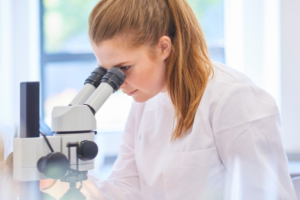As we transition from Women’s History Month (March) to National Public Health Week, the first week of April, it seems natural to turn our attention to the courageous and tenacious women who have shaped public health and prevention strategies over the years. Many of the female leaders in public health were discouraged and often banned from entering the predominantly “man’s world of medicine.”
Women have always been central to the history of health and medicine. They have been nurses, midwives, activists, and public health experts. Women have worked to heal patients, study diseases, and improve access to health care. Today, women comprise more than one-third of the active physician workforce. The number of women applicants and enrollees in U.S. medical schools continued to increase in the 2022-23 academic year.
Women Public Health Pioneers
Florence Nightingale (1820 – 1910)
Dr. Rebecca Lee Crumpler (1831 - 1895)
Maria Montessori (1870 – 1952)
As she treated poor and working-class children who attended free clinics in Rome, she observed that fundamental intelligence was present in children of all socio-economic backgrounds. Such a notion defied the country’s conservative educational expectations. As director of the Orthophrenic School for developmentally disabled children, Maria continued her research. This led her to developing her own method of applying educational theories. Montessori schools are still common today. They are especially effective for children with alternative learning and behavioral styles, which lead them to success they likely would not achieve in a traditional school environment.
Gerty Cori (1896 – 1957)
Mrs. Marty Mann (1904 – 1980)
- Alcoholism is a disease, and the alcoholic is a sick person;
- The alcoholic can be helped, and is worth helping;
- Alcoholism is a public health problem, and therefore a public responsibility.
Marty Mann achieved sobriety through her commitment to helping others. She is considered to be the first woman with longtime sobriety in AA. She opened the door for millions of other women to find sobriety and continues to prevent immeasurable illnesses and deaths associated with substance use.
Dr. Virginia Apgar (1909 - 1974)
Frances Kelsey (1914 - 2015)
Kelsey helped shape and enforce necessary amendments to drug regulation law around safety and effectiveness, informed consent from patients during clinical trials, and reporting of adverse effects. These measures are still protecting people today.
Dr. Antonio Novello (1944 – present)
Dr. Virginia M. Alexander (1900 – 1949)
Joycelyn Elders (1933 – present)
Contemporary Female Pioneers’ Contributions to Prevention
 After years of working behind the scenes, women have made a visible mark in immunization and microbiology since the advent of COVID-19. But not without facing serious obstacles, such as gender discrimination and harassment in their respective workplaces. For many of them this caused self-doubt and undermined self-confidence. Thankfully, they all persevered. Their contributions improved the health and wellness of thousands of people exposed to life threatening illness and disease.
After years of working behind the scenes, women have made a visible mark in immunization and microbiology since the advent of COVID-19. But not without facing serious obstacles, such as gender discrimination and harassment in their respective workplaces. For many of them this caused self-doubt and undermined self-confidence. Thankfully, they all persevered. Their contributions improved the health and wellness of thousands of people exposed to life threatening illness and disease.
Sarah Gilbert
Katalin Karikó
Kizzmekia Corbett
Sharon Peacock
Every prevention professional can help develop our pioneers of tomorrow by becoming a mentor. We challenge you to seek out someone to mentor. You can learn more about the importance of mentoring in our previous blog ‘Mentors Listen, Encourage, and Guide While Youth Learn To Trust’ and at our mentorship webpage.

